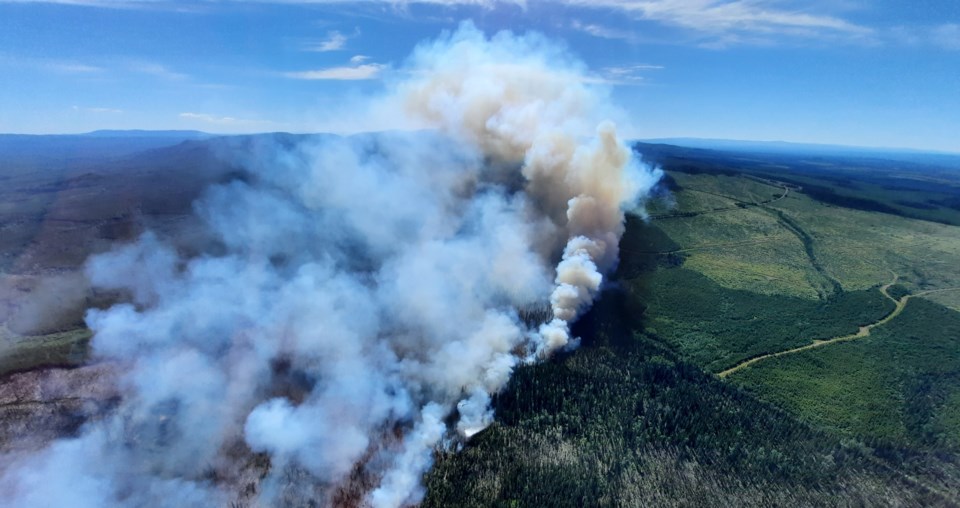First came the heat wave. Then came the fire.
Now, with over 200 fires burning across British Columbia, smoke has once again prompted the B.C. government to warn residents of deteriorating air quality.
“The best way to protect yourself from the effects of wildfire smoke is to reduce your exposure by sheltering in place,” warned the province in a bulletin Wednesday afternoon.
Environment Canada has issued special air quality statements for the next 48 hours in nine jurisdictions across southern B.C., as well as in the Cariboo North, Prince George, Stuart-Nechako and Williston.
Significant smoke has yet to make it down the Lower Fraser Valley and into Metro Vancouver, and the air quality health index remains low from Vancouver to Hope.
Smoky air makes it harder for a person’s lungs to absorb oxygen; fine particulate matter can travel deep into the lungs and lead to inflammation and irritation. That’s particularly concerning for people with chronic lung illnesses like asthma and chronic obstructive pulmonary disease (COPD).
Poor air quality also poses elevated risks to anyone with heart disease or diabetes, as well as pregnant people, infants and children or older adults.
“Exposure to wildfire smoke and the virus that causes COVID-19 can result in both respiratory symptoms, such as a dry cough, sore throat, or difficulty breathing,” warns a press release from Emergency Management BC (EMBC)
EMBC recommends reducing your risk by:
- spending less time outside
- reducing outdoor physical activity
- keeping windows and doors closed
- buying a high-efficiency particulate air (HEPA) filtration system
- seeking respite in an air-conditioned vehicle or in public facilities like shopping malls, community centres, swimming pools or libraries
If you find yourself outside, masks also offer some protection from the smoke.



